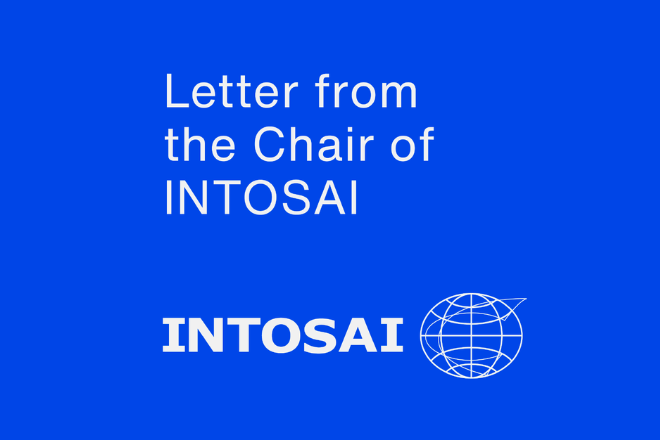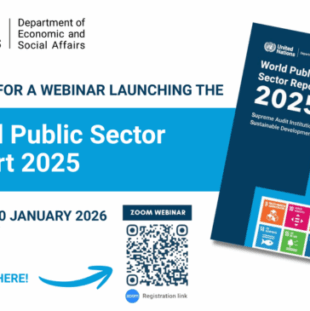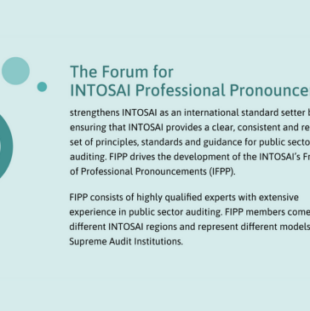Letter from the Chair of INTOSAI: The Importance of the Role of Supreme Audit Institutions in Education

The chair of the International Organization of Supreme Audit Institutions (INTOSAI), Minister Bruno Dantas, in his October 2024 letter, discusses the role of audit institutions in education.

Education is one of the pillars of national development, playing an essential role in improving social and economic indicators that pave the way for a life of dignity for all people. Starting from elementary education, the development of skills holds the potential to directly influence a nation’s competitive edge, economic vitality, and overall developmental status.
Government programs and initiatives in the education sector, predominantly financed by public resources, enable Supreme Audit Institutions (SAIs) to verify the effectiveness of meeting both national and international goals, contributing to broadening access to knowledge, reducing social inequalities, and fostering the creation of a more socially just, equal, and sustainability-committed future.
In the context of international commitments, the 2030 Agenda for Sustainable Development emerges as a milestone in international cooperation, providing an integrated vision for global development. Among the 17 Sustainable Development Goals (SDGs), the fourth goal stands out with its commitment to “Ensure inclusive, equitable, and quality education, and promote lifelong learning opportunities for all.” This goal underscores education as a fundamental human right and reaffirms the State’s dedication to sustaining public policies. Furthermore, education plays a key role in promoting comprehensive human development, fostering social equality, encouraging active citizenship, and preventing social regression. It acts as essential catalyst for achieving the other goals of the 2030 Agenda.
The “Education at a Glance 2024” report by the Organization for Economic Cooperation and Development (OECD) reveals significant progress in education and labour market integration, but also highlights challenges to ensuring universal access to quality educational opportunities, showing a strong correlation between socioeconomic background and school performance. Children from lower-income families have less access to early childhood education and care, a disadvantage that tends to persist throughout their school life, including higher education.
Similarly, the “Progress in International Reading Literacy Study” (PIRLS) highlights the significant disparity in literacy among students from different socioeconomic backgrounds. In countries such as Brazil, Bulgaria, Hungary, and South Africa, students from wealthier backgrounds outperform those from poorer backgrounds by more than 120 points. Regarding higher education and vocational training, data from the “World Education Statistics 2024” by the United Nations Educational, Scientific, and Cultural Organization (UNESCO) show that the global average enrolment rate in higher education is 43%, reaching 79% in high-income countries, according to World Bank classification.
Equity is also a crucial aspect that must be considered in educational policies, as disparities in educational systems between countries and populations create inequalities in the labour market and society. Additionally, gender differences in education and technical training, and disparities in information and communication technology (ICT) skills between urban and rural areas are notable. Indigenous adults are also less likely to complete higher education compared to non-indigenous adults in all countries analysed.
Considering these challenges, Supreme Audit Institutions play an increasingly relevant role in public education policies. Not by chance, the General Assembly of the Latin American and Caribbean Organization of Supreme Audit Institutions (OLACEFS), to be held later this October, has chosen education as its central theme, highlighting the importance of the role of SAIs in strengthening quality education in the region.
Moreover, a proposal is on the agenda to develop a joint strategy among OLACEFS institutions, aiming to strengthen the collaborative role of audit institutions in the educational agenda. The goal is to positively influence educational outcomes, focusing on the governance of public policies and the assessment of the economy, efficiency, and effectiveness of government actions, in line with the 2030 Agenda.
The role of Supreme Audit Institutions is crucial to ensure that investments and public policies in education are implemented with efficiency, transparency, and equity. For this, it is necessary that our institutions continuously adapt to new realities and challenges in the educational sector, which increasingly demand a long-term perspective and a deep understanding of ongoing social transformations, as well as emerging technological innovations.
Supreme Audit Institutions are called upon to support sustainable development by measuring the impact of educational policies, recognizing the interconnected challenges they face. In this scenario, international cooperation, especially within the International Organization of Supreme Audit Institutions (INTOSAI), is essential to strengthen our oversight capabilities and ensure that education remains a priority for sustainable development.
Together, we can turn educational policies in each country into true instruments of social transformation.






